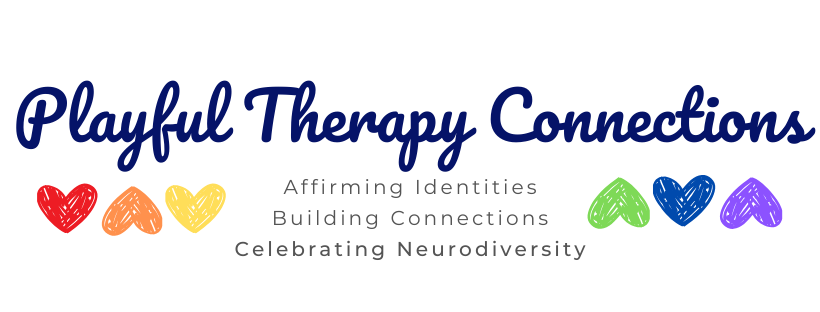What is Play Therapy?
Play Therapy “the systematic use of a theoretical model to establish an interpersonal process wherein trained Play Therapists use the therapeutic powers of play to help clients prevent or resolve psychosocial difficulties and achieve optimal growth and development" (The Association for Play Therapy).
Play Therapy is not the same as regular, everyday play. While spontaneous play is a natural and essential part of the developmental process, Play Therapy is a systematic and therapeutic approach that incorporates a growing number of evidence-based practices and techniques.
Why Play Therapy?
“Play therapy is a structured, theoretically based approach to therapy that builds on the normal communicative and learning processes of children (Carmichael, 2006; Landreth, 2002; O'Connor & Schaefer, 1983). The curative powers inherent in play are used in many ways. Therapists strategically utilize play therapy to help children express what is troubling them when they do not have the verbal language to express their thoughts and feelings (Gil, 1991).”
“In play therapy, toys are like the child's words and play is the child's language (Landreth, 2002). Through play, therapists may help children learn more adaptive behaviors when there are emotional or social… [differences] (Pedro-Carroll & Reddy, 2005). The positive relationship that develops between therapist and child during play therapy sessions can provide a corrective emotional experience necessary for healing (Moustakas, 1997). Play therapy may also be used to promote cognitive development and provide insight about and resolution of inner conflicts or dysfunctional thinking in the child (O'Connor & Schaefer, 1983; Reddy, Files-Hall, & Schaefer, 2005).”
Continue reading about how Play Therapy Makes a Difference from The Association for Play Therapy.
What is a Registered Play Therapist?
A Registered Play Therapist (RPT) is a licensed mental health professional who has additional education, training and supervised experience in the field of play therapy. In Laura’s case, she received her Play Therapy Certificate alongside her Masters in Counseling, allowing her to gain valuable experience in working with children and adolescents through Play Therapy from the very beginning.
RPT’s are regulated by The Association for Play Therapy, that ensures RPT’s meet the stringent standards set by APT to become a credentialed Play Therapist and maintain that status through ongoing continuing education.
Play Therapy should only be provided by mental health professionals who have met the required education, licensure, and additional specialized training and supervision specific to Play Therapy.
Our therapists who work with children engage in ongoing Play Therapy training and receive supervision from Laura, a Registered Play Therapist - Supervisor. Be wary of practices who claim to “offer play therapy” without more information; a clinician who has spent 4 hours attending a training is not going to provide you with the expert services your child deserves.

